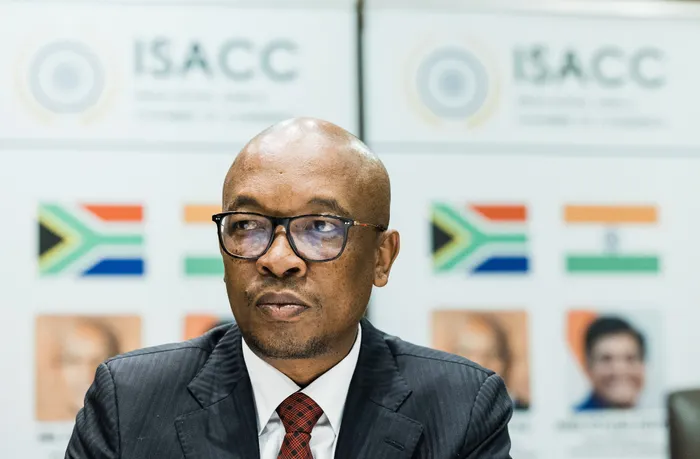South Africa prepares for US trade framework amidst Trump's tariff uncertainties
TRADE POLICY

The Minister of Trade, Industry and Competition, Parks Tau, said South Africa welcomed this indication and expressed a preparedness to engage with the said template once finalised.
Image: Independent Media Archives
Banele Ginidza
The ongoing evolution of trade relationships between the United States and sub-Saharan Africa has entered a critical phase as the USA moves towards establishing a new trade-matters template.
This template will guide its future engagements with African nations, a development revealed by Deputy Minister of Trade, Industry and Competition, Zuko Godlimpi, following discussions last week with the US Assistant Trade Representative for Africa, Connie Hamilton.
On the heels of South Africa's submission for a proposed Framework Deal aimed at bolstering trade and investment relations with the US, the government has urged local businesses to brace themselves for potential changes poised to emerge from this new framework.
Godlimpi's dialogue with Hamilton occurred during the recent US-Africa Summit in Luanda, Angola, where pertinent issues surrounding reciprocal tariffs were also addressed.
While the proposed Framework Deal, submitted on 20 May 2025, underscores measures designed to resolve trade deficits and promote bilateral investment, its future may hinge on the forthcoming US internal approval process.
The expiry of a 90-day tariff freeze, initially set for 9 July 2025, has raised concerns within the South African government about the adequacy of this timeline.
As such, African countries are collectively advocating for a deadline extension to allow adequate preparation for aligning their proposed deals to the forthcoming US template.
The Minister of Trade, Industry and Competition, Parks Tau, said South Africa welcomed this indication and expressed a preparedness to engage with the said template once finalised.
“In this regard, we are of the view that South Africa may need to re-submit its Framework Deal in accordance with the new template. It is thus expected that the deadline may be shifted,” Tau said.
The government is keen to ensure that the new requirements do not unduly disadvantage local enterprises, hence the appeal for strategic patience from the South African industry.
Prospectively, South Africa’s Framework Deal aims to tackle a range of US concerns, including non-tariff barriers and longstanding market access issues.
It seeks specific exemptions from Sections 232 duties for key export products such as automobiles, auto parts, steel, and aluminium, ensuring these critical sectors can remain competitive in the US market.
South Africa is also seeking the maximum tariff application of 10%, as a worst-case situation. The Framework also seeks exemption for Small and Medium Enterprises, counter-seasonal products and products that the US does not have productive capacity for.
“We urge the South African industry to exercise strategic patience and not take decisions in haste and that the government will continue to use every avenue to engage the US government to find an amicable solution to safeguard South African interests in the US market,” Tau said.
As South Africa navigates these complexities, international sentiment has shifted towards urgency.
The New York Times recently reported that governments around the globe were racing to negotiate trade deals with the US in order to forestall President Donald Trump’s punishing tariffs.
Trump announced what he referred to as “reciprocal tariffs” on April 8, saying they were in response to other countries' unfair trading practices. However, he agreed to pause those levies for 90 days to give countries time to reach trade deals with the US.
The coercive nature of previous tariffs has spurred conversations across the globe about fair trade practices, with Trump signalling readiness to impose tariffs on countries perceived as uncooperative—compounding existing anxieties surrounding the impending July deadline.
Some administration officials recently suggested that the deadline could be extended, but Trump has signaled that he was ready to slap tariffs on countries he views as uncooperative.
“We have countries that are negotiating in good faith, but they should be aware that if we can’t get across the line because they are being recalcitrant, then we could spring back to the April 2 levels,” US Treasury Secretary, Scott Bessent, said in an interview with Bloomberg Television on Monday.
BUSINESS REPORT